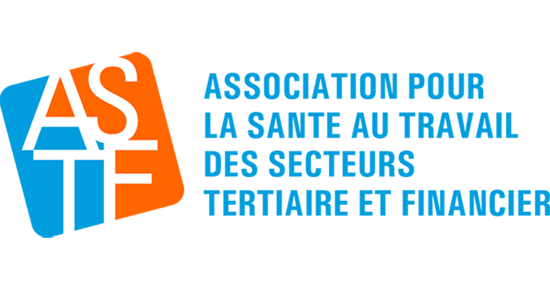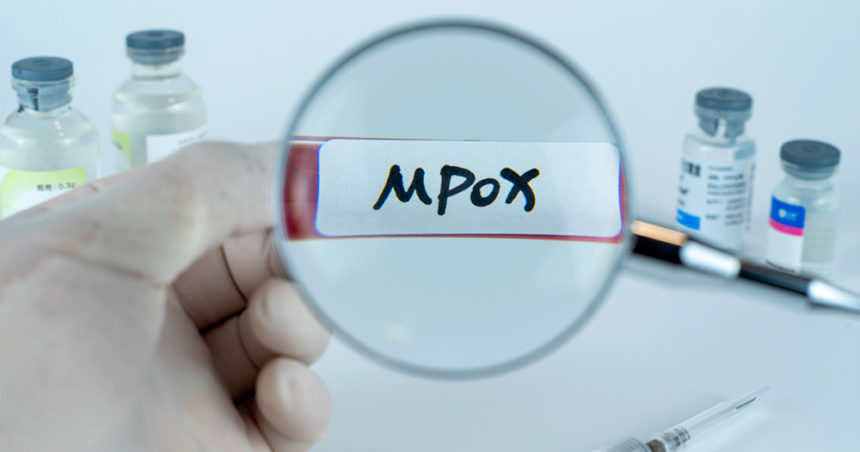— Mpox F.A.Q. —
Created on August 5th, 2022, updated on August 19th, 2024
What are we talking about?
Mpox infection is an infectious disease caused by the monkeypox virus called orthopoxvirus.
The transmission of this disease to humans usually occurs in the forest areas of Central and West Africa via wild rodents or primates.
However, human-to-human transmission remains possible.
What are the symptoms associated with this disease?
The incubation period of this disease (time between infection and the appearance of the first symptoms) can range from 6 to 13 days.
At the end of this period, the following may appear:
• In the first place:
– fever;
– an increase in the volume of painful lymph nodes (under the jaw, in the neck or in the groin fold…);
– headaches;
– muscular pains.
• Then develops:
– a skin rash often on the genital area, although it can also affect the face, mouth, palms and soles of the feet and the rest of the body. The pimples appear in a single outbreak and evolve according to different stages.
The subject infected by the disease is contagious from the appearance of the first symptoms until the fall of the scabs.
Thus, in the absence of symptoms, there does not seem to be a risk of transmission.
How is the disease transmitted?
The transmission of the virus between people is mainly through close and intimate physical contact (sexual intercourse, skin or mucous membrane contact with pimples or scabs).
How long does the disease last?
After an incubation period of 6 to 13 days (maximum 21 days), the disease usually lasts 2 to 4 weeks and heals spontaneously.
Who is concerned?
Anyone who shares close physical contact with an infected person is likely to be at risk of contracting the disease.
However, the factors favoring transmission remain proximity between people as well as the number of close contacts (numerous sexual partners).
The risk of contamination in the general population is evaluated as low by the experts of the WHO and the European Union (ECDC – European Center for Disease Prevention and Control).
Is it a serious disease?
According to current knowledge, the disease remains benign in the majority of cases.
The risk of developing a severe form of the disease seems to be higher for immunocompromised subjects, pregnant women and young children.
Complications include superinfection of skin lesions or respiratory, digestive, ophthalmological or neurological damage.
The lesions can cause local pain.
What should I do if I have symptoms of the disease?
• Contact your doctor as soon as possible so that he/she can refer you to a medical consultation and decide, if necessary, to take a swab from the skin lesion or mucous membrane for virological analysis to confirm the Mpox virus infection (RT-PCR).
• You can also contact the National Infectious Diseases Service (telephone: 4411-3091 (office hours), or 4411-2730 (hospital).
• While waiting for the result or confirmation from your doctor, you should:
– Avoid close contact with others, especially young children, pregnant women and immunocompromised persons;
– Wear a surgical mask;
– Wash your hands regularly;
– Isolate yourself at home;
– Do not share linens, bedding, toiletries or dishes (recommandation in France);
– Do not touch pets and try to keep them for the duration of the isolation;
– If you must go outside: wear a mask, avoid public transportation, cover buttons;
– Self-monitoring (temperature and skin condition).
In case of aggravation of clinical signs, contact 112.
What to do if the diagnosis of the disease is positive?
According to the Superior Council of Infectious Diseases (CSMI), people infected with Mpox must follow a 21-day isolation measure from the date of onset of symptoms (The disappearance of scabs occurs after a period of 3 weeks in most cases).
During the entire period of isolation, these individuals must:
• Avoid physical contact with others even within the home;
• and also with pets;
• Respect barrier measures:
– Wash your hands regularly with soap and water;
– Wear a surgical mask (recommandation in France);
– Do not share or mix your clothes, linens, bedding, toiletries or dishes with others (recommandation in France);
– Disinfect surfaces regularly (recommandation in France);
– Wear condoms even if this measure alone cannot guarantee sufficient protection (recommandation in France);
If you must go on an emergency outing (e.g., a doctor’s appointment), the infected person should:
• wear a surgical mask;
• avoid public transport;
• cover skin lesions with covering clothes (and possibly gloves if you have lesions on your hands (recommandation in France for gloves).
What to do in the company?
Intra-company communication in the form of a circular is useful to inform about mpox, especially about the fact that the primary route of transmission of this disease is through close and intimate physical contact.
If an employee develops a rash suggestive of the disease within 6 to 13 days after contact with the risk, it is advisable that he or she contact his or her personal doctor and remain at home while receiving medical attention.
Concerning his workstation, a “standard” cleaning of the workstation is recommended without the need for a specific disinfection protocol.
What to do if I am in contact?
According to current data from the High Council of Infectious Diseases, there is no indication of strict quarantine for contacts since the risk of transmission is low outside of close and intimate contact.
The High Council of Infectious Diseases recommends the following measures during the incubation period up to 21 days post contact:
• Self-monitoring of clinical signs (fever, headache, muscle pain, rash);
• No close contact, especially sexual or intimate contact;
• Avoidance of large gatherings and parties ;
• Wear a mask when in contact at less than 2 meters;
• Regular hand washing with soap and water.
Treatment
Most of the time, people with the disease recover spontaneously.
Treatment is primarily aimed at relieving symptoms and preventing or treating complications such as superinfections.
An antiviral drug (Tecovirimat) has been approved by the European Medicines Agency for exceptional circumstances.
Vaccination
There is no specific vaccine against Mpox authorized in Europe. However, vaccines used against Smallpox are effective against Mpox (monkeypox) .
CSMI recommends vaccination:
• For immunocompromised persons who have had high-risk contact (sexual contact, contact with skin lesions or mucous membranes of an infected person, contact within the same household) within the previous 21 days, as soon as possible up to 14 days after contact;
• Caregivers who did not apply personal protection.
Finally, Mpox is a notifiable disease.
The health inspectorate carries out an epidemiological investigation and contact tracing for all PCR-confirmed cases.
Useful contacts
• National Infectious Diseases Service (phone: 4411-3091 (during office hours), or 4411-2730 (hospitalization)).
• Health inspection:
• Useful information on Mpox is available on the government websites:
https://sante.public.lu/fr/actualites/2024/08/mpox-situation.html
https://sante.public.lu/fr/espace-professionnel/recommandations/conseil-maladies-infectieuses/variole-du-singe-monkey-pox.html
• Flyers about mpox vaccination : https://sante.public.lu/fr/publications/v/variole-singe-avant-vaccination.html


